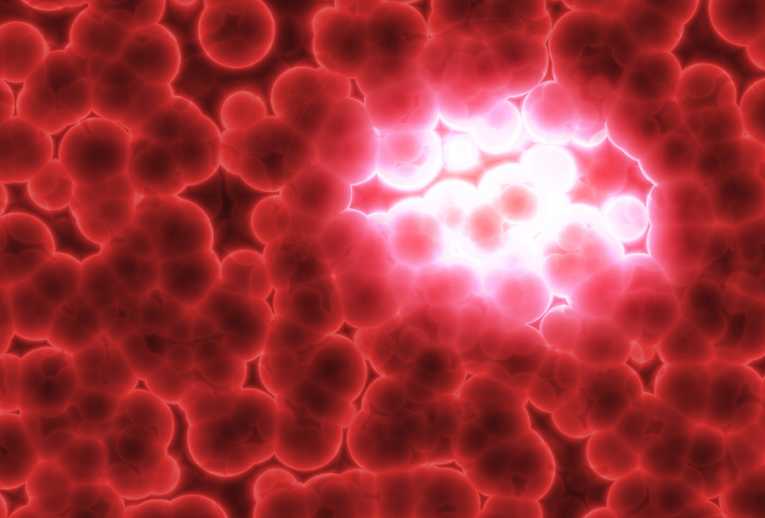Cancerous tumors may just have met their nemesis, according to scientists speaking at the autumn conference of the Society for General Microbiology, which kicks off the UK tomorrow. But the fatal blow being delivered to dangerous tumors comes from an unlikely source - soil-dwelling bacteria, that have a special attraction for conditions found at a tumor's heart. This new therapy - the result of collaboration between the UK-based University of Nottingham, and University of Maastricht, in Holland - should enter clinical trials within 2 years.
The bacterium being harnessed is widespread, harmless and has been on the planet for billions of years. Team leader, Professor Nigel Minton, described them: "Clostridia are an ancient group of bacteria that evolved on the planet before it had an oxygen-rich atmosphere and so they thrive in low oxygen conditions. When Clostridia spores are injected into a cancer patient, they will only grow in oxygen-depleted environments, i.e. the center of solid tumors." This makes them ideal 'trojan horse' candidates for targeting tumors.
'Exquisitely specific' line of attack
"This is a totally natural phenomenon, which requires no fundamental alterations and is exquisitely specific. We can exploit this specificity to kill tumor cells but leave healthy tissue unscathed," said Professor Minton. The trick to turning this selectivity into a tumor-killing therapy lies with giving the bacteria a weapon of attack. That comes from the insertion of an enzyme-producing gene into the Clostridia's DNA. It is tuned-in to unlock a cancer-destroying 'pro-drug'.
The pro-drug is separately administered, and remains harmless until the enzyme and pro-drug are combined. When this happens, the enzyme activates the drug, which takes on its destructive form - killing the cells around it. As only the cancerous cells have the Clostridia bacteria present, this is an elegant solution for removing tumors.
No need for the scalpel?
The approach is one that others have sought to make work, but the difficulty has been getting the bacteria to produce the right enzyme in the needed quantities. The team presenting their paper at this week's conference feel that they have cracked this. Their bacterial strain has a gene that produces the enzyme more efficiently, and in larger amounts, than has previously been achieved.
The clinical trials are likely to be scheduled in the next 18 months. "We anticipate that the strain we have developed will be used in a clinical trial in 2013 led by Jan Theys and Philippe Lambin at the University of Maastricht in The Netherlands. A successful outcome could lead to its adoption as a front-line therapy for treating solid tumors."
If all pans out as predicted, then we could see the therapy become a major new tool in defeating cancer. "This therapy will kill all types of tumor cell. The treatment is superior to a surgical procedure, especially for patients at high risk or with difficult tumor locations," said Professor Minton. "If the approach is successfully combined with more traditional approaches this could increase our chance of winning the battle against cancerous tumors."
Top Image Credit: Growing Cancer Tumor Illustration © Kentoh










